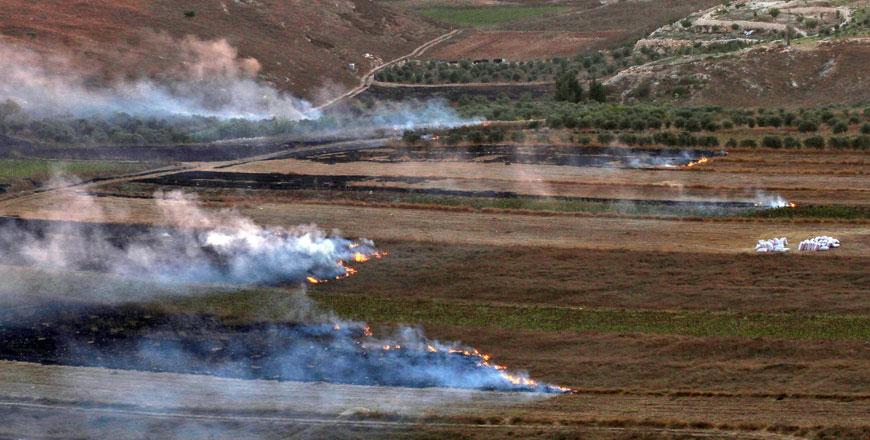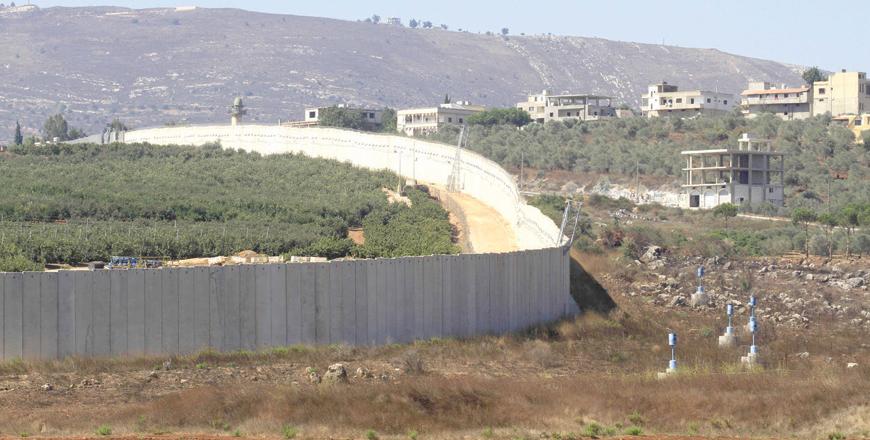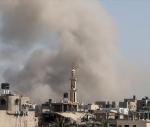You are here
Lebanese army fires at Israeli drones
By AFP - Aug 29,2019 - Last updated at Aug 29,2019
BEIRUT — The Lebanese army opened fire on Israeli drones in south Lebanon on Wednesday in a rare incident as tensions mount between the neighbours.
This came days after Lebanese Shiite movement Hizbollah, with which Israel has fought several wars, accused Israel of carrying out a drone attack on Sunday on its Beirut stronghold.
The weekend incident sent tensions soaring, with Lebanon on Tuesday stressing its right to defend the country “by any means” after what it also describes as an attack.
On Wednesday evening, the Lebanese army said it had fired at two of three drones in violation of its airspace, before all returned across the border.
“A Lebanese army position in the district of Al Adeesa in south Lebanon saw a drone and they fired at it, and it returned” to Israel, a military source told AFP.
“The fire comes in the context of previous instructions that any Israeli movement inside Lebanese territory should immediately be fired at,” it said.
The army said it shot at the first drone after “it violated Lebanese airspace”.
A second drone flew over the nearby area of Kafr Kalla before returning to Israeli airspace, while the army also shot at a third, apparently also in Al Adeesa, it said in a statement carried by the National News Agency.
The agency reported a fourth unmanned aerial vehicle in the Lebanese border area of Marwaheen, dozens of kilometres to the south along the border.
The Israeli forces said its aircraft returned undamaged.
“Shots were heard from Lebanese territory towards an air space in which IDF drones were operating,” it said, referring to the Israeli Defence Forces.
“The drones completed their mission and no IDF damage was reported,” it said.
Israel and Hizbollah have fought several wars, the last of which was a 33-day conflict in 2006, which killed 1,200 people in Lebanon, mostly civilians, and 160 Israelis, mostly soldiers.
Iran-backed Hizbollah is considered a terrorist organisation by Israel and the United States, but it is a major political actor in Lebanon and a key government backer in war-torn Syria.
According to Hizbollah, a pre-dawn attack on Sunday in the south of the Lebanese capital involved two drones. One exploded and another crashed without a blast due to technical failure.
The explosion caused damage to a media centre run by the Shiite movement, it said.
Israel has not claimed responsibility for the incident.
Sunday’s alleged attack came hours after Israel launched strikes in neighbouring Syria.
Hizbollah chief Hassan Nasrallah on Sunday said two Hizbollah fighters were killed in the strikes.
Nasrallah said the alleged Beirut drone attack on Sunday had targeted a “specific place”, but did not give more details.
A Hizbollah-linked source declined to identify the exact target of the strike but suggested it was linked to Israeli efforts to weaken Hizbollah’s drone and aircraft capabilities.
He said this was also the purpose behind the Syria strike, and identified the two victims as Hizbollah drone experts.
According to the pro-Hizbollah Al Akhbar newspaper, the two men studied aircraft engineering at Imam Hussein University in Tehran.
The Times reported the Israeli attack on the Beirut site was aimed at hampering a programme to build guided missiles by taking out a machine used to mix the solid fuel propellants needed for them.
The drones targeted “machinery to mix high-grade propellant for precision missiles”, the report said, citing “western intelligence sources”.
Israeli Prime Minister Benjamin Netanyahu on Tuesday warned Lebanon, Nasrallah and the head of Iran’s elite Quds Force to “be careful”.
He suggested that Nasrallah “calm down” after the latter warned in a televised speech on Sunday of retaliation for the Beirut drone incident.
Nasrallah in that speech said Sunday’s incident would “not pass”.
He vowed that, “from now on we will confront Israeli drones in Lebanon’s sky and work to down them”.
Related Articles
BEIRUT — Lebanon said on Sunday it will ban drones over Shiite areas during commemorations for the Shiite festival of Ashura, following
OCCUPIED JERUSALEM — Israeli Prime Minister Benjamin Netanyahu on Tuesday warned Lebanon, Hizbollah's chief and the head of Iran's elite Qud
BEIRUT — Lebanon's president on Monday said an Israeli drone attack on Beirut at the weekend was a "declaration of war" that justified a mil


















